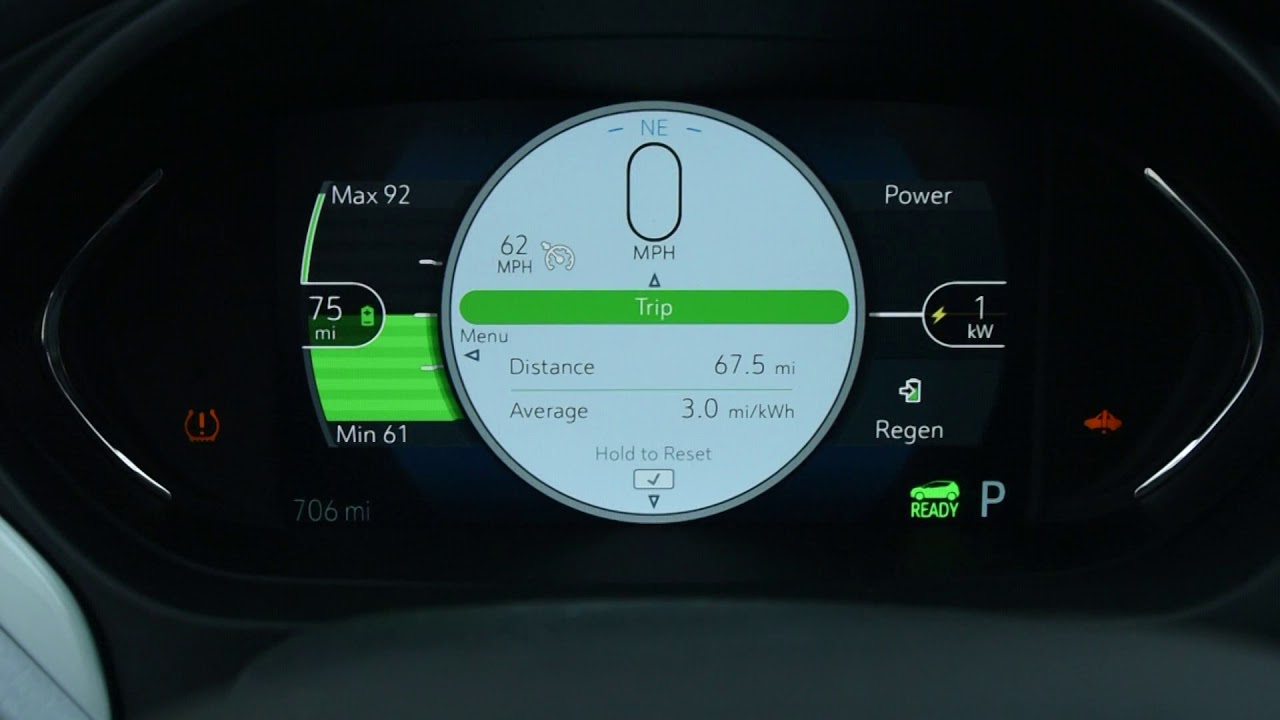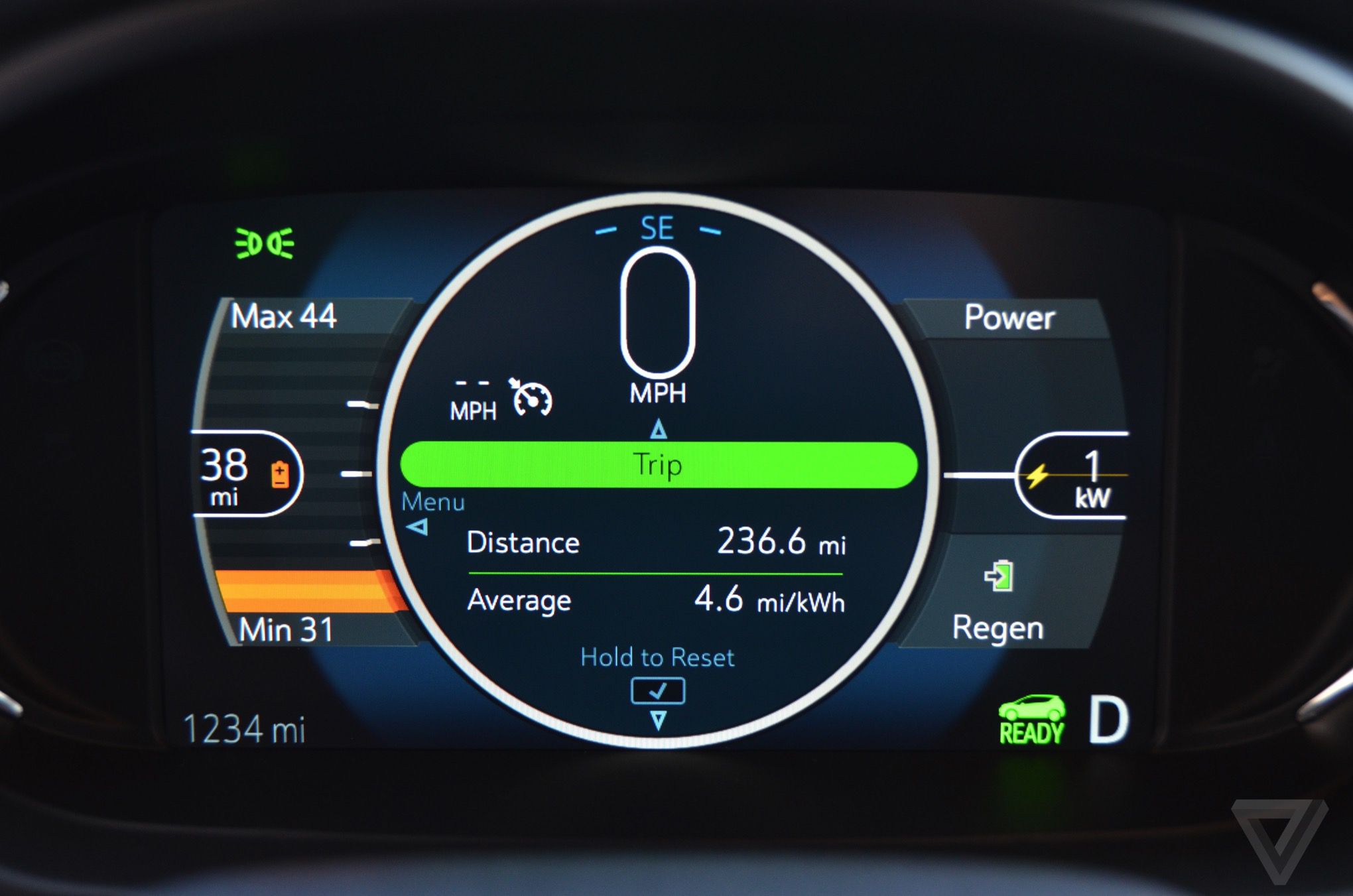A few weeks ago we were coming home in our Bolt. The State of Charge meter was indicating 25% full. The vehicle gave us a low power remaining / propulsion power reduced warning and slowed the car. The SOC bars turned orange and black and started to disappear. Within 3 Km we were dead beside the road with the battery indicating 0% SOC.
After looking on this forum it was apparent that there was a Customer Satisfaction Program #18097 out on the Bolt to reprogram the hybrid powertrain control module 2. We took the car in and had this done. When we got the car back it was much different. Our SOC meter was reading lower and the guess-o-meter range was much reduced. I could not figure out where all the energy went to while the car was in the shop.
On our way home we stopped and charged the car fully with hilltop reserve off. We set off down the highway and started taking readings. The car averaged 2.37 Kwh per 5% of the SOC meter. Prior to going in the shop it had always averaged around 3 - 3.1 Kwh per 5%. This explained the loss of SOC and suggested range following the recall update. The car was telling us that the battery capacity was now 47.5 Kwh. If the new capacity is 60 Kwh then our battery is down 21% in capacity. We contacted our dealer, sent him the data and suggested that they should start looking at a warranty battery to restore our Bolts battery capacity to what one would expect for a car with 12,000 Km / 6700 miles on it. We heard nothing back from them.
We ran another test on our battery capacity a few days later. This test indicated each 5% is now worth 2.19 Kwh which calculates out to a total battery capacity of 43.9 Kwh. The battery continues to diminish in capacity and is now at 27% loss of capacity. I contacted the dealer again and gave them the new data. They have escalated the problem to GM Canada and are waiting to see what happens.
We live in Manitoba and this 1 of 2 Bolts in the province. I have a lot of faith in the dealer and feel they are doing what they can for me. I read that GM can diagnose battery problems via OnStar and have suggested to them that if this is possible that it be done. So far GM Canada seems (and it could be a bad perception) to be doing little to help the dealer out. I read of others getting replacement batteries and our Bolt is telling us our battery has lost capacity and is continuing to die.
So the question is - How does GM decide to replace a battery? How do they make up their minds a battery is failing and requires replacement? WE do not want to continue driving our car and watch the battery capacity reduce until we are dead by the side of raod again. We like our Bolt and enjoy driving it. This is a newer technology and one would expect a few problems. One would also expect that the Producer be very responsive in a timely fashion to the problems however.
Will
After looking on this forum it was apparent that there was a Customer Satisfaction Program #18097 out on the Bolt to reprogram the hybrid powertrain control module 2. We took the car in and had this done. When we got the car back it was much different. Our SOC meter was reading lower and the guess-o-meter range was much reduced. I could not figure out where all the energy went to while the car was in the shop.
On our way home we stopped and charged the car fully with hilltop reserve off. We set off down the highway and started taking readings. The car averaged 2.37 Kwh per 5% of the SOC meter. Prior to going in the shop it had always averaged around 3 - 3.1 Kwh per 5%. This explained the loss of SOC and suggested range following the recall update. The car was telling us that the battery capacity was now 47.5 Kwh. If the new capacity is 60 Kwh then our battery is down 21% in capacity. We contacted our dealer, sent him the data and suggested that they should start looking at a warranty battery to restore our Bolts battery capacity to what one would expect for a car with 12,000 Km / 6700 miles on it. We heard nothing back from them.
We ran another test on our battery capacity a few days later. This test indicated each 5% is now worth 2.19 Kwh which calculates out to a total battery capacity of 43.9 Kwh. The battery continues to diminish in capacity and is now at 27% loss of capacity. I contacted the dealer again and gave them the new data. They have escalated the problem to GM Canada and are waiting to see what happens.
We live in Manitoba and this 1 of 2 Bolts in the province. I have a lot of faith in the dealer and feel they are doing what they can for me. I read that GM can diagnose battery problems via OnStar and have suggested to them that if this is possible that it be done. So far GM Canada seems (and it could be a bad perception) to be doing little to help the dealer out. I read of others getting replacement batteries and our Bolt is telling us our battery has lost capacity and is continuing to die.
So the question is - How does GM decide to replace a battery? How do they make up their minds a battery is failing and requires replacement? WE do not want to continue driving our car and watch the battery capacity reduce until we are dead by the side of raod again. We like our Bolt and enjoy driving it. This is a newer technology and one would expect a few problems. One would also expect that the Producer be very responsive in a timely fashion to the problems however.
Will















